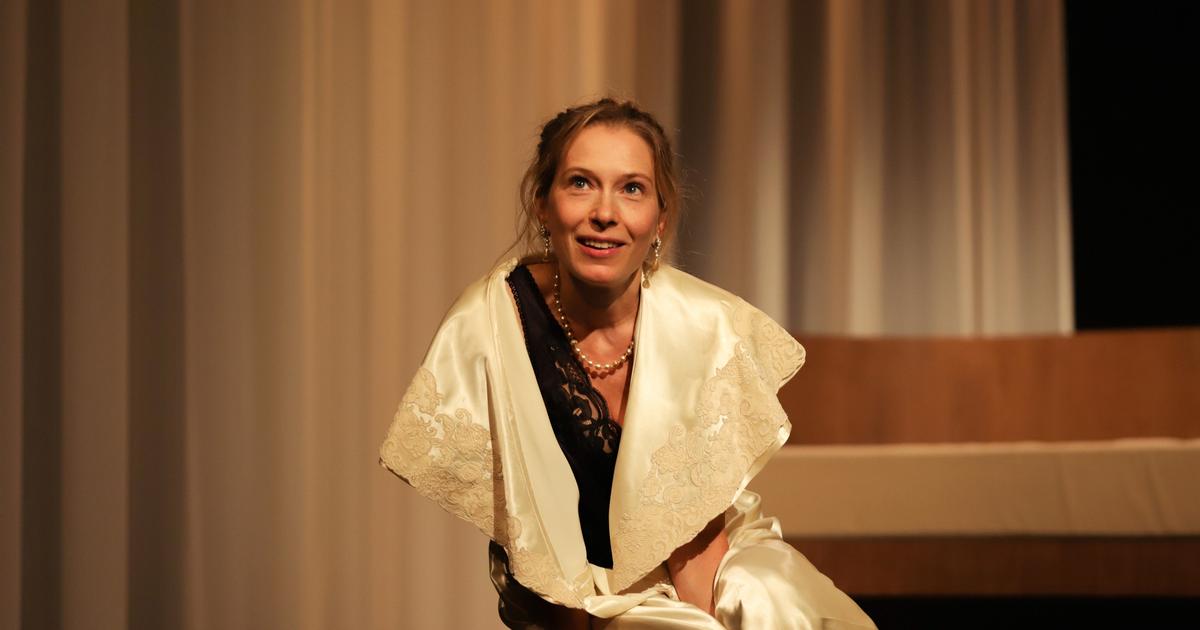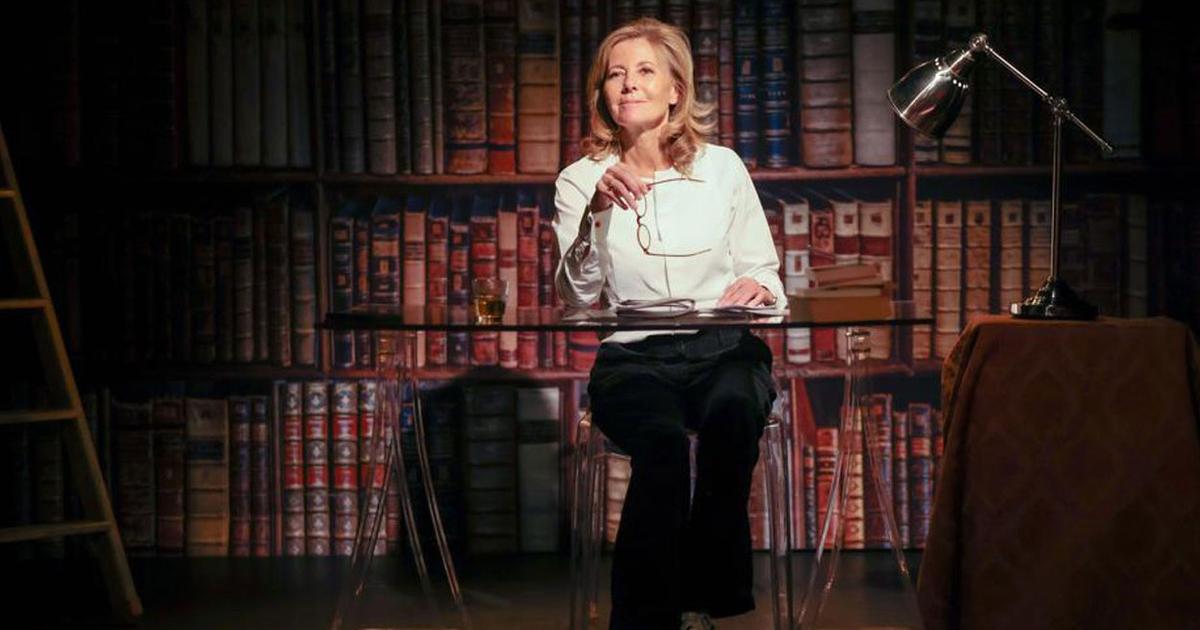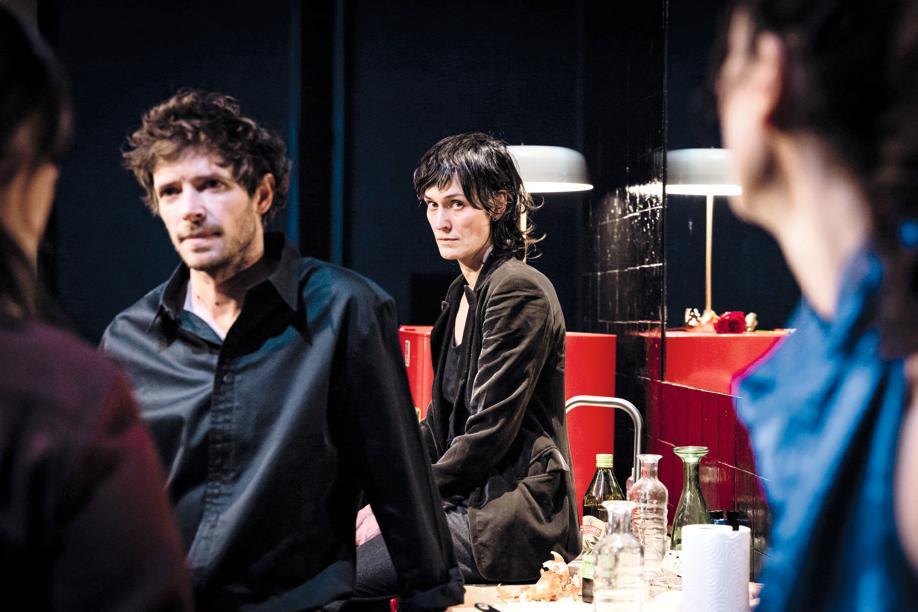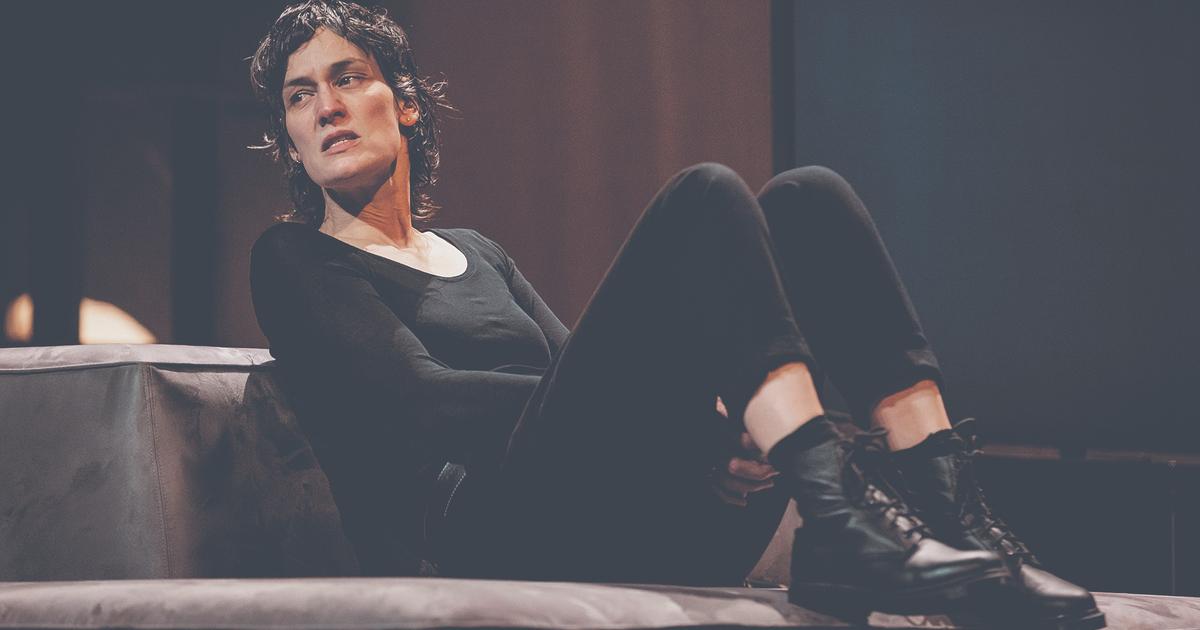She has the fairness of an elf from Middle-earth.
But the arrow she is going to shoot is a simple letter, the one sent by an "unknown" to the man she has spent her life loving in absolute secrecy.
Alone on the stage of the Studio des Champs-Elysées, Ophelia Kolb says, plays, lives the famous short story by Stefan Zweig, published in 1922. For an hour and twenty, the actress tells the story of this stranger whose name we will never know. first name.
Our heroine says "to be born at 13", the day a successful writer came to settle in his small building in Vienna at the beginning of the century.
After this adolescent love at first sight, she will never stop living only for him, nourished by this one-sided love.
A life that she will organize in the hope of meeting this man,
without ever openly declaring themselves.
There will be two encounters without a future, a son will even be born from a fleeting night shared with “him”.
Viennese Tourbillon
But it was only when she was dying that she decided to take up the pen in this posthumous letter.
“If it comes into your hands, you will know that it is a dead woman who tells you about her life, her life which was yours from its first to its last hour”, she writes feverishly.
One hundred years after the first publication, Ophelia Kolb, revealed in the series
Ten percent
, in the role of the girlfriend of the character played by Camille Cottin, embodies this figure of incandescent passion sometimes with incredible strength, sometimes disconcerting fragility, but always with infinite grace.
If we know her especially for her appearances on television and in the cinema (she will soon be in
Le Torrent
, by Anne Le Ny, alongside André Dussollier), Ophelia Kolb has built part of her career in the theater: in 2019, she won the Molière for best actress in a supporting role for
The Glass Menagerie
.
Here, she holds her audience on the wire, and carries them away in the whirlwind of a Viennese waltz where flashes of joy illuminate this singular destiny.
His modern interpretation of the text brings a new scope to the character who is no longer passive, but actor of his destiny.
Ophelia Kolb thus embraces the words of Zweig who once wrote to a friend: “To write is to intensify, be it the world or oneself”.
Isn't that precisely what our stranger does?
Answers from a rising actress.
Madame Figaro.- Zweig's text was published in 1922. Didn't you feel a sense of anachronism in this “crazy” love story, compared to our time?
Ophelia Kolb.-
The vision of the man-woman relationship is dated for sure, but this deep attachment that the heroine expresses is universal.
It's a timeless story, a love story.
The story of someone who gets lost in a thing or a person will always exist;
it can be a cause, a job, we all have this ability to lose ourselves for someone or something.
It speaks of love, but also of sacrifice.
And the need for recognition.
Today, we would try to look for the psychological springs of this obsessive personality...
The spectators talk to me a lot about madness, indeed.
But for me this love gave meaning to his life;
without this passion she might have led a morose life… And there is also this child, whom she had by this man after a night spent with him.
Growing him up gives him a reason to get up in the morning, gives him hope.
This love gave meaning to her life, without this passion she might have led a gloomy life.
Ophelia Kolb
Doesn't she feel anger towards this man?
She sees only kindness in this man who makes his living, who goes out, who is free, without having a family plan to build.
Above all, she wants to be recognized by him.
That may be where her pathology lies: she expects everything from him.
At first, I played more anger, but I made it evolve towards more self-mockery.
I laugh on stage to make her laugh at herself.
She does not see herself as a victim.
It's beautiful, what she lives.
Isn't there something of the order of
faith
in her?
Completely !
I don't have a religious education, I don't know all that well, but I thought about it during rehearsals.
The character gives himself to this man as others would give themselves to God.
She follows a very particular way of life to please him and remain available, like rites.
At 15, I was madly in love with a high school boy.
Like her, I watched him on the stairs
Ophelia Kolb
On video, the Green Perfume
trailer
Why doesn't she take the plunge, doesn't she confess this love to him?
She is probably afraid of taking reality in the face, of finding out who he really is, afraid of being disappointed… It happened to me when I was younger, at 15: I was madly in love with a boy from high school , he never noticed me.
Like her, I watched him on the stairs at his parents' house, I saw the lights in the apartment at night.
And I was afraid of being disappointed, that he was an idiot;
we prefer to live in the myth.
The public as a game partner
The narrator does not have a first name. Did you imagine one for him to build the character?
I didn't imagine a first name during rehearsals, I didn't miss it.
And then one day I said to myself that her name was Constance: I don't really know why, but it's true that she is constant in her feelings, her passion.
But today, I've appropriated her so much that her name is Ophelia Kolb!
This is your first "alone on stage", what are your impressions?
When I started, I was afraid of being alone on stage, with no one to lean on and talk to before the show.
But in fact, it's with the public that I play, it becomes my playing partner. And so, depending on the public, on how I feel about the room, I modify my intonations.
I can speak quietly, be more intimate.
I have a lot of fun, it avoids getting into monotony.
Letter from a stranger
by Stefan Zweig.
Adapted and directed by Bertrand Marcos, with Ophelia Kolb.
Until December 30 at the Studio des Champs-Élysées, Wednesday to Saturday at 9 p.m., Sunday at 4 p.m., closed on November 30, and December 24 and 25.
From December 1: Thursday to Saturday at 8 p.m., Sunday at 4 p.m.








